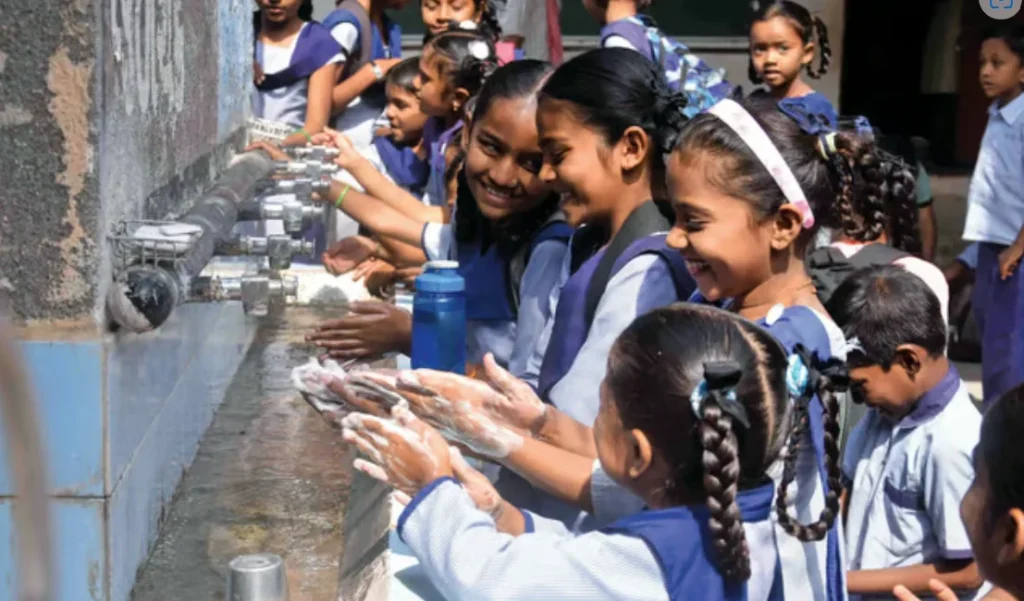Ensuring children’s health in challenging environments, where living conditions, healthcare access, and nutrition are limited, is a significant challenge. However, with the right strategies, it is possible to protect and nurture children even in difficult circumstances. Here are top health tips to keep children healthy in such environments.
1. Ensure Proper Nutrition
Balanced Diet
A balanced diet is crucial for a child’s growth and development. Provide a variety of foods that offer essential nutrients:
- Diverse Food Intake: Include fruits, vegetables, whole grains, and proteins in meals.
- Nutrient-Rich Foods: Focus on nutrient-dense foods like leafy greens, beans, nuts, and dairy products.
Safe Drinking Water
Access to clean drinking water prevents waterborne diseases:
- Water Purification: Use water filters or boil water if its quality is uncertain.
- Hydration: Ensure children drink enough water daily, especially in hot climates or during physical activities.
Breastfeeding
For infants, breastfeeding is a critical source of nutrition:
- Exclusive Breastfeeding: Encourage exclusive breastfeeding for the first six months.
- Continued Breastfeeding: Continue breastfeeding alongside solid foods up to at least two years of age.
2. Promote Good Hygiene Practices
Handwashing
Handwashing with soap prevents infections:
- Regular Handwashing: Teach children to wash hands regularly, especially before eating and after using the toilet.
- Accessible Facilities: Ensure accessible handwashing facilities with soap and clean water.
Personal Hygiene
Maintaining personal hygiene prevents skin infections:
- Daily Bathing: Encourage daily bathing or washing, especially after playing outside.
- Clean Clothing: Ensure children wear clean clothes to reduce the risk of infections.
Sanitation
Proper sanitation prevents diseases:
- Toilets: Use toilets or latrines to dispose of waste properly.
- Waste Management: Properly dispose of waste to keep living areas clean.
3. Regular Health Check-Ups and Vaccinations
Immunization
Vaccinations protect children from preventable diseases:
- Follow Vaccination Schedule: Adhere to the recommended vaccination schedule.
- Community Awareness: Educate communities about the importance of vaccinations.
Health Screenings
Regular health screenings detect and address health issues early:
- Routine Check-Ups: Schedule regular health check-ups to monitor growth and development.
- Early Intervention: Identify and treat health problems like malnutrition and infections promptly.
4. Encourage Physical Activity
Active Play
Physical activity is essential for development:
- Daily Exercise: Encourage daily physical activities like playing and sports.
- Safe Play Areas: Ensure safe places for children to play, free from hazards.
Limit Screen Time
Excessive screen time can lead to health issues:
- Balanced Activities: Limit screen time and promote a balance of activities, including physical play, reading, and creative tasks.
5. Mental Health and Emotional Well-Being
Supportive Environment
A loving and supportive environment is crucial:
- Emotional Support: Provide emotional support and reassurance during stressful times.
- Positive Interactions: Encourage positive interactions with family and peers to build security and belonging.
Stress Management
Teach children coping mechanisms:
- Mindfulness Practices: Introduce mindfulness practices like deep breathing and relaxation techniques.
- Open Communication: Encourage children to express their feelings and concerns.
Social Interaction
Social interactions are important for emotional development:
- Peer Interaction: Facilitate opportunities for children to interact with peers.
- Community Engagement: Involve children in community activities to build a sense of belonging.
6. Prevent and Treat Infections
Prompt Medical Attention
Early diagnosis and treatment prevent complications:
- Seek Medical Help: Seek medical attention if a child shows signs of illness.
- First Aid: Learn basic first aid to manage minor injuries and illnesses at home.
Preventive Measures
Take steps to prevent infections:
- Mosquito Control: Use mosquito nets and repellents in areas prone to mosquito-borne diseases.
- Hygiene Education: Educate children on avoiding contact with sick individuals and maintaining good hygiene.
7. Educate on Health and Safety
Health Education
Educate children about health, hygiene, and safety:
- Interactive Learning: Use games and activities to make health education engaging.
- Practical Lessons: Teach practical lessons on hygiene, nutrition, and safety practices.
Safety Measures
Ensure the home and play areas are safe:
- Childproofing: Childproof the home to prevent accidents.
- Supervision: Supervise children during play and other activities.
8. Provide Adequate Rest and Sleep
Regular Sleep Routine
A consistent sleep schedule is vital:
- Set Bedtimes: Establish regular bedtimes and wake-up times.
- Relaxing Environment: Create a quiet and comfortable sleep environment.

Conclusion
Keeping children healthy in challenging environments requires a comprehensive approach addressing their nutritional, physical, mental, and emotional needs. By ensuring proper nutrition, promoting hygiene practices, providing regular check-ups and vaccinations, encouraging physical activity, supporting mental health, preventing infections, educating on health and safety, and ensuring adequate rest, caregivers can enhance children’s health and well-being. These strategies, though demanding, are crucial for giving children the best start in life, even in the most difficult circumstances.
